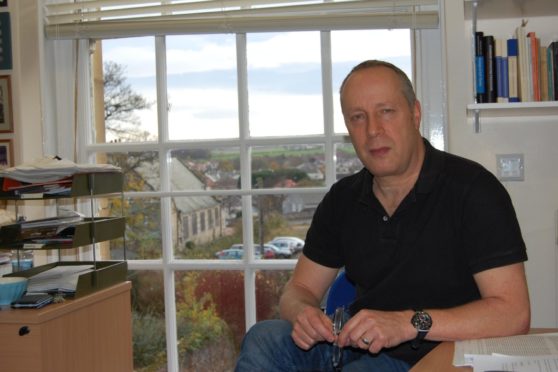An adviser to Nicola Sturgeon has claimed the rise in Covid cases linked to Scots football fans at the Euros shows the country risks scoring an “own goal” – and warned politicians to learn from last year’s push to reopen restaurants.
Professor Stephen Reicher, from the University of St Andrews, said government should reflect on the Eat Out to Help Out campaign and the impact it had on the spread of infection.
The marketing slogan was used by UK Chancellor Rishi Sunak as the Tory government tried to get people back into pubs and restaurants – before a vaccine was available.
But with new figures suggesting nearly 2,000 Covid cases linked to Scottish fans at the Euros, Prof Reicher reacted: “Will this year’s Euros be last year’s Eat Out to Help Out’ – on steroids? The evidence is starting to emerge.”
Will this year's Euros be last year's 'Eat Out to Help Out' – on steroids?
The evidence is starting to emerge.
https://t.co/VbsPPGmnSQ via @pressjournal— Stephen Reicher (@ReicherStephen) June 30, 2021
Huge crowds attended matches at Hampden and gathered in public places in London for the top-billed tie with England.
Public Health Scotland confirmed two-thirds of the cases were linked with travel to London. There were conditions attached to tickets for Wembley and health officials said people may have spread Covid “unknowingly”.
Professor Reicher, who is a member of the Scientific Advisory Group for Emergencies (Sage) subcommittee on behavioural science, said the race between vaccination and infection is “so delicately poised”.
He added: “We create the potential for spreader events in virtually every household in the country. We turn the Euros into Eat Out to Help Out, writ large.”
On his social media account, he continued: “Admit that the Euros, Wimbledon, Silverstone are political choices, acknowledge the risks, and then let’s do something about them. Don’t turn the Euros into an own goal!”
In earlier comments, the professor said the country was in danger of repeating last summer’s mistakes.
He was referring to the UK Government Eat Out to Help Out scheme which offered a 50% discount for people eating in a participating restaurant for some of last summer on particular days of the week.
University research suggested the plan, which cost half a billion pounds, caused a significant rise in new infections in August and early September, pushing Britain into a second wave.
What happened last summer?
Professor Reicher said: “My fear is that we’re on line to repeat the mistakes of last summer – if you remember, the Prime Minister told us it was our patriotic duty to go to the pub, that people should go to work or they might lose their jobs, we had eat out to help out.
“The consequence was we never got infections low enough to be able to deal with the disease and so when conditions changed in the autumn, when schools went back and people went back to work and universities went back and the weather got worse and we went inside, so infections spiked.
“And I think this time round, we should learn from that and we should get infections low to a point where we we’re in a much better place in the autumn, where we don’t have to reimpose restrictions.
“So I think the real question is how can we do that without inconveniencing people too much?”
The professor said test and trace was still not working properly or contacting people quickly enough, and pointed to the lack of support for people to self-isolate.
He added: “It seems to me that if we got right the basic public health moves to suppress infection, we wouldn’t be talking about a high reservoir of infection which can then spike very quickly when conditions change.”
He said the vaccines had weakened the link between cases and hospital admissions but it was not broken.
“So it’s belt and braces, of course vaccination makes a difference but it doesn’t mean you forget about everything else,” Professor Reicher added.

